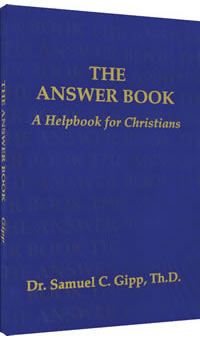Why doesn't the King James Bible always translate "Yahweh" as Jehovah?

From "Answers To Your Bible Version Questions" ©2001 David W. Daniels.
Reproduced by permission
Answer: You expressed a concern about the following statement by Gail Riplinger:
"Now we are seeing a parallel move within the new Bible versions where it’s not Jehovah anymore it’s just ‘Lord.’ It’s not Jesus Christ it is just ‘the Christ.’"
You are correct that the KJV uses "LORD" to translate the divine name in most instances. However, there are seven instances in which the KJV translators used "Jehovah" for very specific reasons. Gail Riplinger actually was correct that modern Bibles have removed "Jehovah" in these seven instances.
The KJV translators used the name "Jehovah" whenever the name Yahweh was found under one of the following three conditions:
1. When YHWH is used as God’s personal name.
Exodus 6:3 And I appeared unto Abraham, unto Isaac, and unto Jacob, by the name of God Almighty, but by my name JEHOVAH was I not known to them.
Ps 83:18 That men may know that thou, whose name alone is JEHOVAH, art the most high over all the earth.
2. When God’s name is repeated as "Jah Jehovah."
Isaiah 12:2 Behold, God is my salvation; I will trust, and not be afraid: for the LORD JEHOVAH is my strength and my song; he also is become my salvation.
Isaiah 26:4 Trust ye in the LORD for ever: for in the LORD JEHOVAH is everlasting strength:
3. When God’s personal name is part of a place name.
Jehovah-jireh
Genesis 22:14 And Abraham called the name of that place Jehovah-jireh: as it is said to this day, In the mount of the LORD it shall be seen.
Jehovah-nissi
Exodus 17:15 And Moses built an altar, and called the name of it Jehovah-nissi:
Jehovah-shalom
Judges 6:24 Then Gideon built an altar there unto the LORD, and called it Jehovah-shalom: unto this day it is yet in Ophrah of the Abi-ezrites.
Jehovah was the pronunciation of JHVH (YHWH) that the English speaking people understood as the Personal Name of God. So in places where the Personal Name of God was emphasized, the King James translators transliterated the Name Jehovah.
Jehovah or Yahweh?
While I am sure that God does not care whether we pronounce His personal Name as Jehovah or Yahweh, even the New American Standard translators admit the fact that "It is known that for many years YHWH has been transliterated as Yahweh, however no complete certainty attaches to this pronunciation" (Principles of Translation from the "Preface to the New American Standard Bible," 1997 edition). The pronunciation is a moot point.
If the vowels added later in Hebrew (200-700 AD by the Massoretes) are not the way to pronounce the Name of God, then there is nowhere that we can find the correct pronunciation. Many modernist "scholars" say that Yahweh was a local god that was elevated by the tribe of Israelites to the One God. They say Yahweh was the consort (lover) god of Baal, maybe even female! But if you say, "Jehovah" (just like when you say, "hell" instead of "sheol") people know what you are talking about: The One Personal, Invisible God of Israel and the Christian Church.
Gail Riplinger has a point. Something as clear and meaningful as this has been stripped of its significance by the generic word "LORD" or "GOD" in these specific seven instances. Just because the modern bibles (including the NKJV) changed it does not mean they IMPROVED it.
The King James translators understood, as our modernist translators do not, that there was significance in these specific seven places, where the personal name of God was referred to. They transliterated JHVH as Jehovah only in these places, for these good reasons. The modernists have once again simply decided to hide these significant points from the reader.
- See more articles on related topics:
- Bible Versions
- King James Bible
- Bible Translation
Products of interest:
-

Answers to Your Bible Version Questions
224 pages
David W. Daniels answers difficult questions about the KJV. Learn how to defend the KJV and why you can trust it. -

Answer Book, The
165 pages
Over 60 of the most commonly asked questions about Bible versions are answered in an easily understood style. -

Can You Trust Just One Bible?
160 pages
Answers to the most common anti-KJV accusations. -

Did the Catholic Church Give Us the Bible?
208 pages
The Bible has two histories. One is of God preserving His words through His people. The other is of the devil using Roman Catholic "scholars" to pervert God’s words and give us corrupt modern Bibles.
